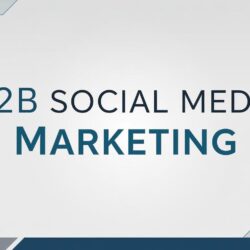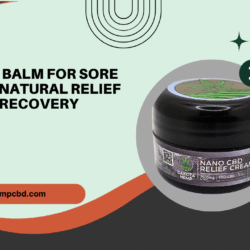In the current B2B landscape, generic outreach is no longer sufficient. B2B Sales Prospecting must be personalized to stand out and convert prospects into loyal clients. Personalization involves tailoring messaging, engagement strategies, and content to the unique needs, behaviors, and challenges of each prospect. By leveraging insights from data, technology, and market intelligence, sales teams can build stronger relationships, demonstrate value early, and increase the likelihood of conversion. Personalized prospecting is both an art and a science, requiring thoughtful research and strategic execution.
The Importance of Personalization in B2B Prospecting
Personalization improves engagement, builds trust, and increases response rates in B2B sales. Prospects are more likely to respond to outreach that reflects an understanding of their specific challenges and goals. Personalized prospecting demonstrates diligence, professionalism, and a commitment to solving business problems rather than just selling a product. By customizing communication, sales teams can differentiate themselves from competitors and establish credibility as trusted advisors.
Defining Your Ideal Customer Profile for Personalization
The first step in personalized prospecting is a clear understanding of your Ideal Customer Profile. The ICP defines the types of organizations that will benefit most from your solution and includes factors such as industry, company size, revenue, location, and technology stack. Personalization is more effective when outreach targets prospects who align closely with the ICP. This ensures relevance and increases the likelihood of meaningful engagement, reducing wasted time on unqualified leads.
Researching Prospects for Tailored Engagement
Effective personalization requires thorough research. Sales teams must understand each prospect’s organizational structure, decision-makers, current initiatives, and challenges. Tools like LinkedIn, company websites, news articles, and industry reports provide critical insights. This research allows sales professionals to craft messages that are relevant and demonstrate an understanding of the prospect’s business context, which builds credibility and encourages engagement.
Segmentation and Targeted Messaging
Segmentation is a powerful tool for personalized prospecting. By grouping prospects based on industry, role, engagement history, or stage in the buyer journey, sales teams can create messaging that resonates with each segment. Targeted communication ensures that the prospect receives information that is relevant to their needs and increases the likelihood of meaningful conversations. Segmentation also helps in prioritizing high-value prospects for focused engagement.
Multi-Channel Personalized Outreach
Reaching prospects through multiple channels enhances engagement. A combination of email, phone calls, social media interactions, webinars, and personalized video messages ensures continuous visibility. Each channel should reinforce the personalized message and provide unique value. For example, a LinkedIn message may introduce your expertise, followed by an email with a relevant case study, and then a personalized call to discuss potential solutions. Multi-channel engagement ensures prospects experience consistent, relevant communication.
Leveraging Technology for Personalization
Technology plays a critical role in enabling personalization at scale. CRM systems, marketing automation platforms, and AI-powered tools help gather prospect data, segment audiences, and craft tailored messaging. Automation allows sales teams to deliver personalized follow-ups and content without losing efficiency. Combining technology with human insight ensures that every interaction feels thoughtful and relevant, which is essential for building trust and nurturing leads.
Using Intent Data to Personalize Outreach
Intent data provides insights into the topics and solutions prospects are actively researching. By analyzing online behavior such as content downloads, webinar registrations, and website visits, sales teams can understand what matters most to each prospect. Personalized outreach based on intent data ensures that communication addresses the prospect’s current priorities, making messages more relevant and increasing the chances of conversion.
Content Personalization for Higher Engagement
Sharing personalized content is a key strategy in B2B sales prospecting. Case studies, whitepapers, research reports, and industry insights tailored to the prospect’s challenges demonstrate expertise and add value. Tracking content engagement also provides additional data to refine follow-up strategies. Personalized content strengthens credibility, educates prospects, and positions your brand as a trusted resource throughout the buyer journey.
Account-Based Prospecting for High-Value Targets
Account-Based Prospecting focuses on delivering highly personalized strategies to specific high-value accounts. This approach involves mapping stakeholders, understanding organizational goals, and creating customized engagement plans. ABP ensures that resources are allocated to prospects with the highest potential and allows sales teams to develop deeper relationships. Personalized, account-focused outreach increases conversion rates and shortens the sales cycle.
Aligning Sales and Marketing for Personalized Engagement
Collaboration between sales and marketing enhances personalization efforts. Marketing can provide insights on content engagement, campaign performance, and lead behavior, which helps sales teams tailor outreach. Alignment ensures consistent messaging and maximizes the impact of personalized communication. When both teams work together, prospects experience a cohesive journey, improving engagement and increasing the likelihood of conversion.
Follow-Up and Nurturing in Personalized Prospecting
Follow-up is critical in personalized prospecting. Prospects may require multiple touchpoints before converting. Value-driven follow-ups that reference previous interactions, content engagement, or specific business challenges reinforce relevance and demonstrate attentiveness. Nurturing leads with personalized communication keeps the prospect engaged and builds trust over time, increasing the probability of conversion and long-term client relationships.
Measuring Success in Personalized B2B Prospecting
Tracking metrics such as response rates, engagement levels, lead quality, and conversion ratios is essential for optimizing personalized prospecting strategies. By analyzing this data, sales teams can refine messaging, improve segmentation, and identify the most effective engagement channels. Continuous measurement ensures that personalized prospecting remains efficient, impactful, and aligned with business goals.
Future Trends in Personalized B2B Prospecting
The future of personalized B2B sales prospecting will rely heavily on AI, predictive analytics, and intent data to enhance targeting and engagement. These tools will provide deeper insights into prospect behavior and preferences, allowing sales teams to deliver highly relevant communication. Despite technological advancements, human empathy and strategic thinking will remain critical to ensure personalization feels authentic and builds long-lasting relationships.
About Us
Acceligize is a global B2B demand-generation and technology marketing firm specializing in performance-driven lead generation solutions. Their services include content syndication, account-based marketing, intent and install-based targeting, and custom campaign strategies. Leveraging data science, technology, and human intelligence, Acceligize helps clients reach high-quality audiences and drive conversions across the full marketing funnel.





